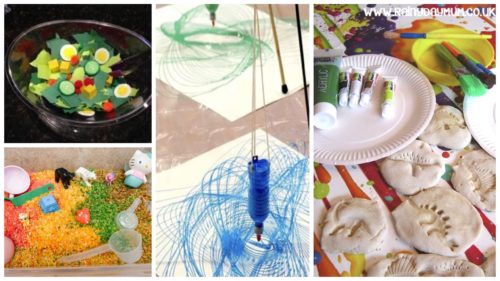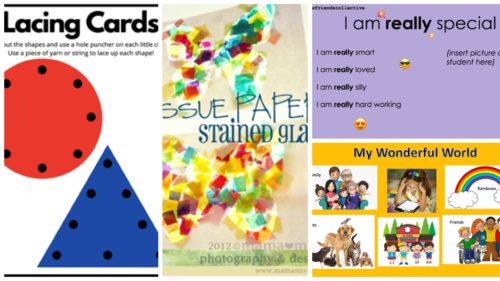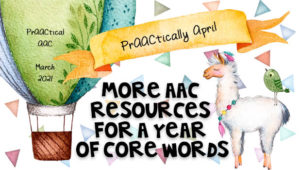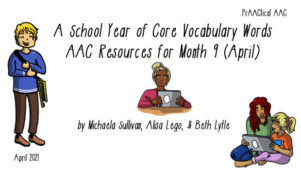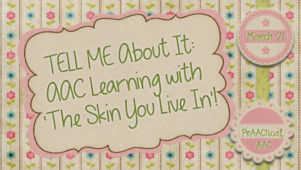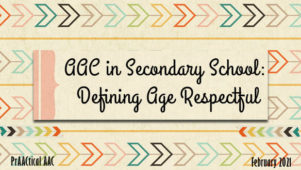School Year of Core Vocabulary Words: AAC Resources for Month 10 (May) by Michaela Sullivan, Alisa Lego, & Beth Lytle
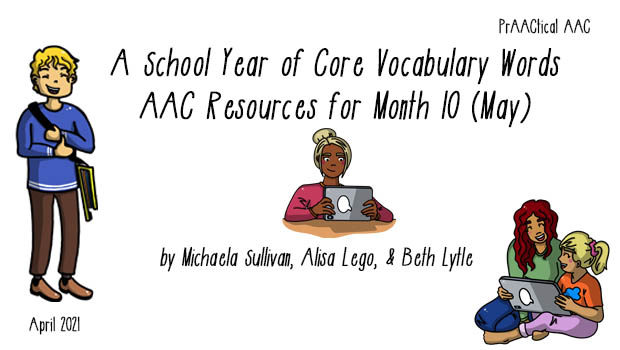
It’s almost May so we’re back with another post in the School Year of Core Vocabulary Words Series by guest authors Michaela Sullivan, Alisa Lego, and Beth Lytle. This series focuses on a selected set of words to highlight for the month along with a suggested order in which to teach them. Therapists and teachers will appreciate the Activity Packets, containing suggestions for highlighting these words in a variety of activities. Their Data Collection Forms and tips on using shared reading in our AAC teaching are appropriate for AAC learners of various ages.
If you are new to this series, you may want to review the introduction that our series and check out the first 9 months of the School Year of Core Vocabulary Words using the links below.
You can find posts for previous months in the School Year of Core Vocabulary Words below.
- Introduction to the School Year of Core Vocabulary Words Series
- Month 1: August
- Month 2: September
- Month 3: October
- Month 4: November
- Month 5: December
- Month 6: January
- Month 7: February
- Month 8: March
- Month 9: April
A SCHOOL YEAR OF CORE INTRODUCTION- MAY
To the parents, teachers, Speech-Language Pathologists, Paraprofessionals, friends, and other curious professionals or communicators – welcome back to the monthly School Year of Core Words- May 2021 Edition.
Summer is on the horizon, and we are starting to wrap up the passion project that became School Year of Core. We are now kicking off month ten of the series and we hope you have been able to use this project to help expand your students’ vocabulary. The past year of working on this project has forever changed the way we look at core vocabulary and we are grateful for all of you that have joined us on this journey. We hope this project will continue to impact and foster core language vocabulary growth for many years to come.
Many of the May Level 1 and Level 2 words are opposite words such as top and bottom. There are also some adjectives such as comfortable, uncomfortable, wonderful, and terrible. This is a great time to reflect on the school year and how it has been for our students in this unprecedented time.
We are thankful for the amazing Core Contributors who have worked tirelessly to create the activity sheets and resources in the postings. We are continuing to work in teams to create resources. We have learned that working together brings diverse and rich ideas that we want to impart to all of you and your incredible students.
Our Featured Core Contributors for the Month of May include:
- Nancy Robinson
- Carolann Cormier
- Sam Lin
- Jamie Deiner
- Alice Mui
- Abbie Duarte
- Wes Heidenreich
- Sophie Goodwin
- Liz Cambra
- Andriana Nikolau
- Jessica Oseguera
- Meaghan Rose Baron
- Beth Kenney
Enjoy Month 10 of the School Year of Core Words!
THE WORDS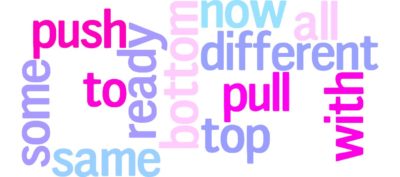
Level 1 words for May: now, ready, to, with, push, pull, same, different, top, bottom, some, all
The suggested sequence for implementation is listed below:
- Week 1: now, ready, to, with
- Week 2: push, pull, same, different
- Week 3: top, bottom, some, all
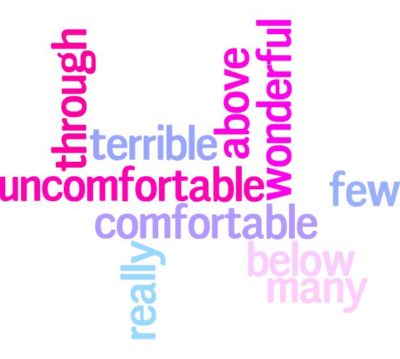
Level 2 words for May: few, many, below, above, through, really, comfortable, uncomfortable, terrible, wonderful
The suggested order for these words is listed below:
- Week 1: few, many, below, above
- Week 2: through, really, comfortable, uncomfortable
- Week 3: terrible, wonderful
THE SYMBOLS
You can download grids with the symbols for this month’s words from the lists below. These handy tools can help us remember what words to focus on and be useful in our intervention and instruction.
Level 1 Words
- Avaz
- CoughDrop
- LAMP Words for Life
- Wordpower 60 Basic
- Unity 45 Sequenced
- Unity 60 Sequenced
- Unity 84 Sequenced
- Blank Grid (add your own symbols)
Level 2 Words
- Avaz
- CoughDrop
- LAMP Words for Life
- Wordpower 60 Basic
- Unity 45 Sequenced
- Unity 60 Sequenced
- Unity 84 Sequenced
- Blank Grid (add your own symbols)
THE ACTIVITIES
These sets of Activity Packets are divided into weeks and can be downloaded for easy access.
Activity Packets for Level 1 Words
Activity Packets for Level 2 Words
Strategy of the Month:
THE PARTICIPATION MODEL AND PARTICIPATION PLANS
Once students begin utilizing their recommended AAC systems (whether low or high-tech), educational and therapeutic teams often focus on how and when such systems can be implemented and utilized meaningfully throughout the day. Sometimes teams create Participation Plans which can help guide and outline the process. The specific approach is as different and as unique as each communicator and the strengths and needs of the individual and the team must be taken into consideration to ensure that OPPORTUNITY BARRIERS, (usually imposed by the people in the environment) and ACCESS BARRIERS, (which can be related to the individual who uses AAC) do not deter progress. (Beukelman & Mirenda, 1988; 2013)
Examples of Opportunity Barriers: (Diagrams, courtesy of Kelly Fonner, (Using the AAC Participation Model to Guide Implementation, by Kelly Fonner, Education and Assistive Technology Consultant, AAC in the Cloud Conference, 2019)
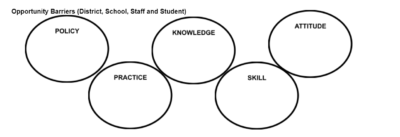 Examples of possible Access Barriers:
Examples of possible Access Barriers:
RESOURCES
Please find the following additional resources on The Participation Model below. These resources may be helpful for individual learning and/or for team training.
- Video of the Week: Using the AAC Participation Model to Guide Implementation, by Kelly Fonner, Education and Assistive Technology Consultant, AAC in the Cloud Conference, 2019
- Participation Plans in Classroom Settings Worksheet, courtesy of Kelly Fonner, 2003
- Strategy of the Month: Building Participation by Carole Zangari, PrAACtical AAC, October 5, 2013
- PrAACtical AAC Strategy of the Month: Classroom Participation by Carole Zangari October 19, 2013
- How We Do It: AAC in the Special Education Classroom by Angi Pearce, a teacher at Kowhai Special School in Hastings, New Zealand, PrAACtical AAC, October 5, 2013
- Building Participation with Older Learners, by Robin Parker, 2013, PrAACtical AAC
- Implementation Strategies for Building Communication and Learning through AAC in the Classroom by Christy Butler, SLP; and Anne Kuhlmeier, SLP
A special thank you to Edna-Jo Piccirillo for collaborating on this strategy!
DATA COLLECTION & ACCOUNTABILITY FORMS
Taking data to measure performance and keeping track of our own modeling behavior are two things we can do to strengthen our AAC teaching. Here are some forms that you can use to support those efforts.
This posting is dedicated to all of you SLP’s, parents, educators, and therapists who are making a difference every day!
About the School Year of Core Vocabulary Series Authors
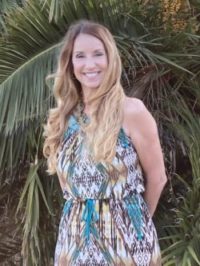 Michaela Sullivan is an SLP who specializes in the fields of AAC and AT. She currently works within the San Francisco Unified School District on the AAC Support Team where she supervises graduate students, works in a transition program and on special projects. Ms. Sullivan also has a private practice. She has been a presenter in the field of SLP and AAC at state and national conventions. She serves as a board member and volunteer for the Nika Project, providing services, supports, resources, training, and repurposed equipment for individuals with complex communication needs both locally and internationally.
Michaela Sullivan is an SLP who specializes in the fields of AAC and AT. She currently works within the San Francisco Unified School District on the AAC Support Team where she supervises graduate students, works in a transition program and on special projects. Ms. Sullivan also has a private practice. She has been a presenter in the field of SLP and AAC at state and national conventions. She serves as a board member and volunteer for the Nika Project, providing services, supports, resources, training, and repurposed equipment for individuals with complex communication needs both locally and internationally.
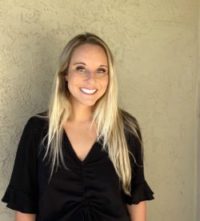 Alisa Lego is a second-year graduate student and candidate for Master of Science in Speech, Language and Hearing Sciences at San Francisco State University. Alisa is specializing in AAC through San Francisco State University’s federally funded Project Building Bridges. Alisa is also a candidate for the Autism Spectrum Graduate Certificate. Through Project Building Bridges, she has joined the Nika project and is providing resources for individuals with complex communication needs both locally and across the globe. You can follow Alisa on Instagram at @newfriendscollective.
Alisa Lego is a second-year graduate student and candidate for Master of Science in Speech, Language and Hearing Sciences at San Francisco State University. Alisa is specializing in AAC through San Francisco State University’s federally funded Project Building Bridges. Alisa is also a candidate for the Autism Spectrum Graduate Certificate. Through Project Building Bridges, she has joined the Nika project and is providing resources for individuals with complex communication needs both locally and across the globe. You can follow Alisa on Instagram at @newfriendscollective.
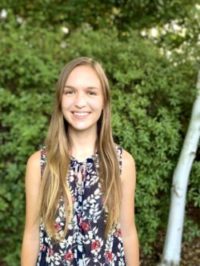 Beth Lytle is a second-year graduate student and candidate for Master of Science in Speech, Language and Hearing Sciences at San Francisco State University. Beth is specializing in AAC through San Francisco State University’s federally funded Project Building Bridges. Through Project Building Bridges, she has joined the Nika project and is providing resources for individuals with complex communication needs both locally and across the globe.
Beth Lytle is a second-year graduate student and candidate for Master of Science in Speech, Language and Hearing Sciences at San Francisco State University. Beth is specializing in AAC through San Francisco State University’s federally funded Project Building Bridges. Through Project Building Bridges, she has joined the Nika project and is providing resources for individuals with complex communication needs both locally and across the globe.
Filed under: Featured Posts, PrAACtical Thinking
Tagged With: A Year of Core Vocabulary Words, core vocabulary, school
This post was written by Carole Zangari
